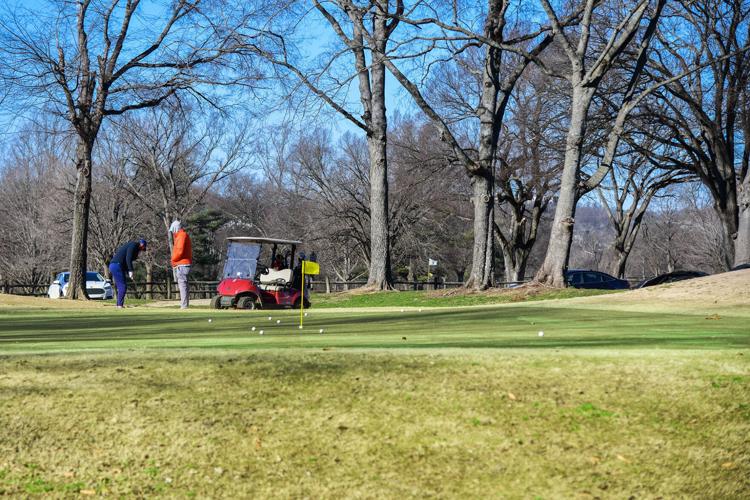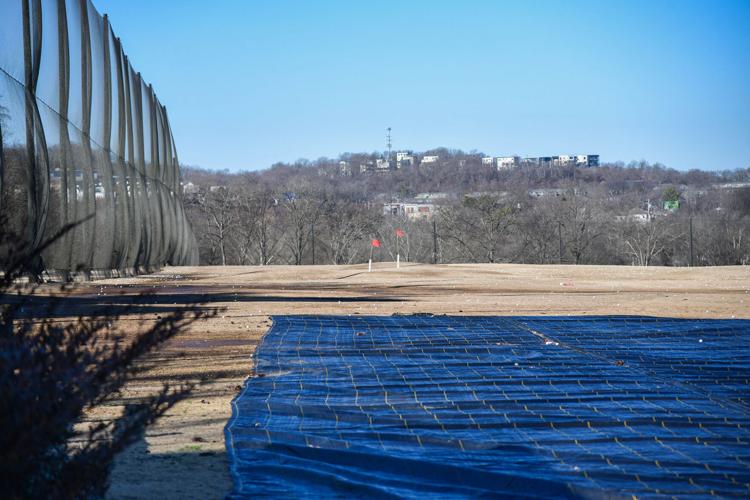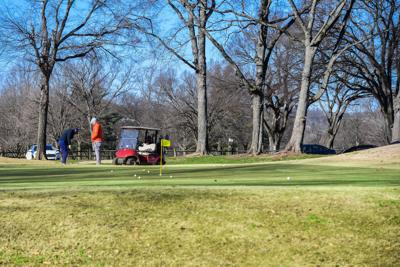Despite substantial operating losses and growing public scrutiny of the resource-intensive pastime, the city is doubling down on its extensive golf program, investing millions to keep facilities in playing shape.
Nashville’s golf program consistently loses money, claiming about 10 percent of the total Metro Parks and Recreation budget. Its six public courses cover 984 acres of the city’s most sought-after land, particularly on the West Side, where developers have struggled to build housing amid neighborhood backlash. Over in East Nashville, dog owners from Lockeland Springs to Riverside regularly encroach on Metro’s Shelby Golf Course. In response to a Scene inquiry, Parks shared financial breakdowns for Ted Rhodes, Harpeth Hills, Two Rivers, Shelby, Percy Warner and McCabe, the city’s six main courses. (Metro turned over operations of a seventh, junior course, VinnyLinks near Shelby Park, to youth golf development organization First Tee of Tennessee in 2016.)
Metro golf course funding increased from $4.2 million in 2019 to $6.6 million in 2022. Over the same period, courses lost $2.4 million (2020), $1.3 million (2021) and $1.8 million (2022). Set in the heart of Sylvan Park and hemmed by a popular greenway loop, the 27-hole McCabe Golf Course is both the most expensive to run and the course that brings in the most money. The industry itself is subject to high standards of beauty: smooth fairways, trimmed greens, manicured tee boxes. Like the game itself, golf course maintenance is a constant exercise in patience and creative problem-solving that pits groundskeepers against grass, water, divots, sprinkler systems and rodents (currently a scourge at McCabe) in an eternal — and expensive — struggle toward perfection.
On a mild Friday afternoon in February, Demarkcus Harmon and Aaron Duncan squeezed in nine holes between work and child care duties. Though McCabe is noticeably more racially diverse than the city’s private country club courses, middle-aged men rule the course.
“You can usually walk on and team up with other guys; it’s reasonably priced and typically in pretty good shape,” says Duncan. “I’ve got four kids, so it’s not easy to find time. They’re in school so I can come get nine holes in.” On this February afternoon, Duncan walked, shot nine over and paid $17.
“This game is transcendent for me, and it has a lot to do with my newfound enjoyment of walking,” says Harmon. “The course is straightforward and walkable, and has an excellent driving range. And I can get nine holes in because it’s right near day care.”
Fresh from a quick session at McCabe’s driving range, Dan Cohen compares square contact on a golf ball with various types of addictive drugs. That high keeps him on the course year-round.

McCabe Golf Course
“There is a sensation that goes through my body when I hit it absolutely perfectly,” says Cohen. “I love golf. Yes, there might be better uses of Parks land, and yes, they are a terrible use of resources. They have 27 holes here. Do we need 27 holes? Probably not. But I hate country clubs and fancy golf courses like that. I’ve always been a public-golf guy.”
All of the golfers who spoke with the Scene tout McCabe for its driving range and convenient location — near work for Duncan, day care for Harmon, and Cohen’s front door — and superior course condition. They frequent Metro’s other courses, which they say are noticeably less busy.
Despite million-dollar losses and day-to-day headwinds, Metro Parks has doubled down on making Nashville a golf city. It has upped budget requests and initiated an overhaul at Percy Warner, which will remain closed until Sept. 1 while it undergoes a $2 million redesign by nationally renowned course architect Bruce Hepner. The project was funded in part by Friends of Warner Parks, a group of well-connected boosters that subsidizes improvements and maintenance for the beloved West Side park system. This year’s budget included an additional $138,000 to control golf course vegetation and $70,000 for an assistant manager at Percy Warner, which, according to the Metro Parks Department, doesn’t have the staff to meet operating hours.
City-planning critics from California to China have slammed golf courses as resource-intensive services that lock up huge swaths of land for a narrow recreational use. The quintessential country club sport, golf has a base that skews old, white and male. Municipal options offer cheaper alternatives to invitation-only courses like Belle Meade and Richland, where dues can hit six figures.
Housing advocates say the sport is a comically inefficient use of urban land, carrying high maintenance costs and restricted accessibility. Right now, the elite (private) Hong Kong Golf Club faces a government proposal that would repurpose course land for housing — Beijing’s solution on an island strapped for livable space and flush with wealth. A bill that would help convert public courses into housing annually divides the state legislature in California, where water — groundskeepers’ most critical resource — is about as scarce as affordable rent.
A spokesperson for the Parks Department says Nashville has never considered closing any courses and has no plans to repurpose any golf course land.







